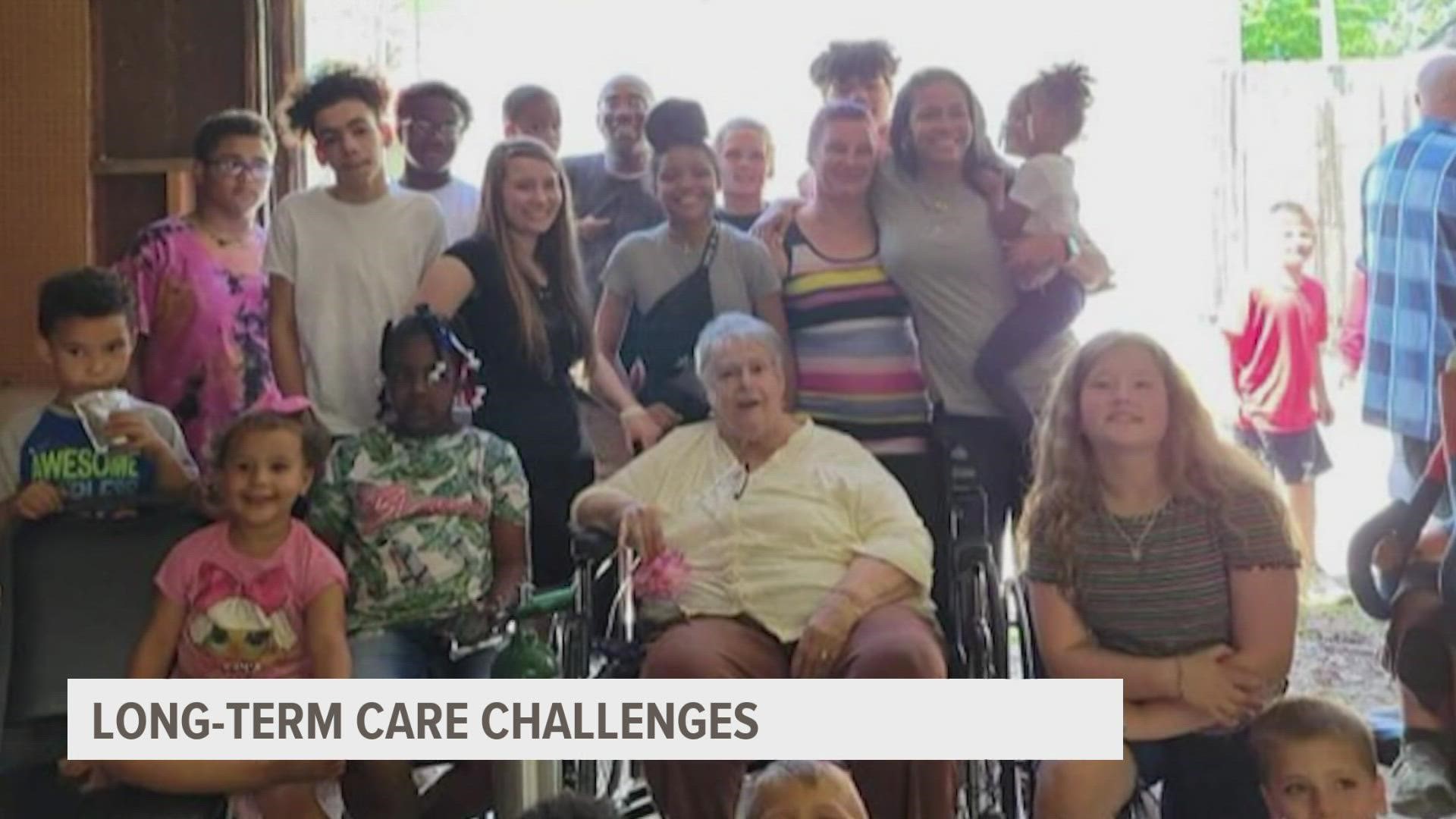DES MOINES, Iowa — Seven years ago, when Rhonda Moore Hunter and Terrie Emerey's mother Lois went to live at a specialty care facility, it seemed like an ideal spot.
"She enjoyed doing the crafting and playing cards and the different things with the ladies and the people out there," said Moore Hunter. "She was happy, joyous."
The sisters say it turned into a story of neglect.
"UTI, sepsis, blood infections, the not bathing," said Emerey.
Their mom lives at Parkridge Specialty Care in Pleasant Hill. Recently, the family said her treatment has put her life in danger.
"What's it going to take for my mother to become septic again, and this time die from it," said Moore Hunter.
The family says they've met with leaders at Parkridge, even recording many of their meetings.
Local 5 reached out the Care Initiatives, the company that overseas Parkridge Specialty Care. In a statement, a representative said, "Out of respect to our residents, we do not comment on the specifics of their health care."
The family has also reached out to various state agencies for help, including the Iowa Department of Inspections and Appeals.
Local 5 reached out to the agency. A spokesperson said in an email to Local 5: "We can confirm we have staff onsite conducting a survey, but cannot confirm any details."
According to Kay Vanags, director of LifeLong Links at Aging Resource of Central Iowa, the industry is facing challenges.
"That is the lack of trained and qualified direct care workforce. And of course, through the pandemic, that's been a huge challenge," said Vanags.
So, what should families do? Vanags said it starts with being proactive.
"Our job is just making sure that people know that there are just tons of ways that people can patch together services to be able to continue to live that independent lifestyle that most people want," said Vanags.
If a problem does come up, Vanags said, families should reach out for help.
"I would recommend the long-term care ombudsman office, and through the Department on aging, that's really their job to be the intermediary between families, individuals in nursing homes and, and the nursing home," said Vanags.
Meanwhile, Moore Hunter and Emerey say they are still waiting for a resolution.
"We're not asked for nothing special. Just treat her and take care of her get her basic care like she's supposed to have," said Moore Hunter.

